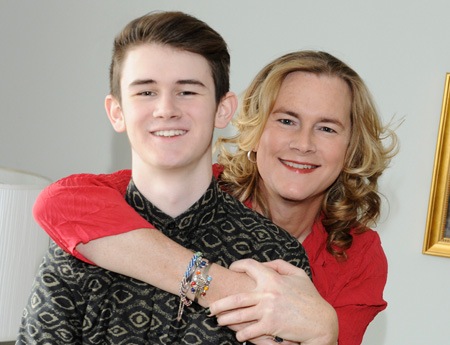Good-Bye, Millennials… Hello, Generation Z

The smarter way to stay on top of broadcasting and cable industry. Sign up below
You are now subscribed
Your newsletter sign-up was successful
Like Generation X before it, millennials (also known as Generation Y) are starting to become yesterday’s news—at least to the youth-serving networks that have long coveted them.
And with the older millennials now in their mid-30s, those younger nets are busily trying to decipher and match the viewing preferences of the next demo, generation Z. It is a tale as old as primetime.
“We do not want to chase a generation out into eternity,” ABC Family president Tom Ascheim told B&C. “It is a shifting universe.”
While nearly 70% of 12-to-34-year-olds are millennials today, in five years, they will account for less than half the target. So ABC Family’s proactive upfront strategy is geared around a new term, “Becomers,” which the network coined to describe its next most-favored audience. ABC Family says 69 million people fall under its “Becomers” rubric, with an estimated spending power in the trillions.
MTV last week in its own upfront was also decidedly looking beyond millennials, noting how it did the same when gen-Xers’ AARP cards started arriving.
“Back in 2008, MTV bid fond farewell to generation X and we set ourselves on a new course to embrace the millennial generation,” said MTV president Stephen Friedman during the April 21 presentation, touting shows such as Teen Wolf, Catfish and Finding Carter. “These days, as we zero in on the younger end of the generation and even look to the next, we’re seeing some stark differences.”
Making the Right Connection
The smarter way to stay on top of broadcasting and cable industry. Sign up below
Growing up during the technology boom, millennials were the first generation to truly adopt multiplatform viewing. The next generation, however, practically had iPhones in their palms right after birth.
“This generation grew up with social media as part of their norm,” said Ascheim. “They are not just digital natives, they’re social authors.” Ascheim stressed that this group spends almost as much time on their mobile device (three hours per day) as they do watching linear television (four hours).
With the next generation so hyper-connected, networks are catering to that ideal. “We are exploding our development process across every single screen,” said Friedman, citing the “unlimited points of connection” available to audiences today.
During its upfront, MTV provided advertisers with a look at the latest in its ongoing “Always On” initiative, through which it harnesses the power of 220 million social followers to create and distribute real-time video and editorial content across on-air, online, mobile and social. MTV expanded the initiative to create live, multiplatform programming events, from its “MLK IS NOW” pro-social campaign in January to the “Beyoncé-thon” Guinness World Record-breaking dance relay marathon in New York’s Times Square in March.
“They are consuming at a rate far faster than the industry can measure it,” added Nev Schulman, Catfish executive producer and cohost.
During its presentation, MTV played a six-minute clip that will open its upcoming Scream adaptation. The scene was essentially a modern riff on the famous opener with Drew Barrymore in the original 1996 film; instead of getting a worrying phone call, the new version saw star Bella Thorne receive a series of frightening text messages on her iPhone. MTV also has a development deal with Vine star Logan Paul for a “loosely scripted” comedy series based on his life.
ABC Family’s executive VP, programming and development Karey Burke added that audience engagement on social platforms has become paramount to their strategy. The network’s upcoming Mortal Instruments spinoff Shadowhunters will have a digital hub. “Really baked into our development strategy now—both in scripted and unscripted—are ideas about how our audience can engage with the show both online and on our linear channels,” said Burke.
ABC Family sees Becomers as full of optimism and idealism, with recent economic struggles, and gender and race issues doing little to dampen their spirits.
“They share a sense of optimism [with millennials],” said Ascheim. “They are less gender-stereotyped.”
Friedman argues that the “optimism and passion” is still there, “but it’s collided with a lot of really complicated world events.” He argued that this audience is drawn to more lighter, ironic entertainment.
“They know their big dreams are going to be a lot harder to achieve,” said Friedman. “The virtue that they value beyond all others is ‘hustle.’”
